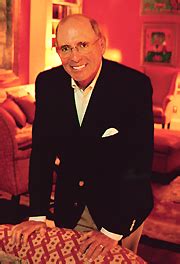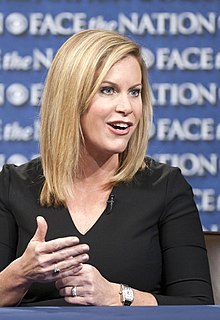A Quote by Charles O. Rossotti
Steve McClellan has drawn on an insider's lifetime view of how Wall Street really works to produce a practical and entertaining book of advice for investors. Whether you are a new or experienced investor you'll get something valuable out of it, including more than a few chuckles.
Related Quotes
I got all the respect in the world for the front-runners in this race, but ask yourself: If we replace a Democratic insider with a Republican insider, you think we're really going to change Washington, D.C.? You don't have to settle for Washington and Wall Street insiders who supported the Wall Street bailout and the Obamacare individual mandate.
I think the money for the solutions for global poverty is on Wall Street. Wall Street allocates capital. And we need to get capital to the ideas that are successful, whether it's microfinance, whether it's through financial literacy programs, Wall Street can be the engine that makes capital get to the people who need it.
My hope is that the film Wall Street 2 will actually serve as a way for us to bridge that gap between Wall Street and Main Street. Certainly that's dealt with in the film of how it does affect everybody, so, you know, I always find that when you can create a movie or a play or a book that gives somebody a safe theoretical place to discuss what is really going on in the day it tends to forward discussion, so that would be my hope coming out of the film.
Wall Street can be a dangerous place for investors. You have no choice but to do business there, but you must always be on your guard. The standard behavior of Wall Streeters is to pursue maximization of self-interest; the orientation is usually short term. This must be acknowledged, accepted, and dealt with. If you transact business with Wall Street with these caveats in mind, you can prosper. If you depend on Wall Street to help you, investment success may remain elusive.
In the creative industries, there are few things more exciting than a zinger - a thought, idea, line, plot device - anything really, that just totally works in a fundamentally new and fresh way. It's like a uniquely lovely melody or a new taste idea in cooking. Something special, something new, something wonderful. They're also very rare.
I do think it's getting more and more rare in this country to raise a kid with the attitude that creativity is something valuable. The idea of trying to make the effort to produce something, to put something out into the world, rather than just taking in all the stuff the world's putting out at you.
Logic is the subject that has helped me most in picking stocks, if only because it taught me to identify the peculiar illogic of Wall Street. Actually Wall Street thinks just as the Greeks did. The early Greeks used to sit around for days and debate how many teeth a horse has. They thought they could figure it out just by sitting there, instead of checking the horse. A lot of investors sit around and debate whether a stock is going up, as if the financial muse will give them the answer, instead of checking the company.
I heard governor Romney here called me an economic lightweight because I wasn't a Wall Street financier like he was. Do you really believe this country wants to elect a Wall Street financier as the president of the United States? Do you think that's the experience that we need? Someone who's going to take and look after as he did his friends on Wall Street and bail them out at the expense of Main Street America.
Our standard prescription for the know-nothing investor with a long-term time horizon is a no-load index fund. I think that works better than relying on your stock broker. The people who are telling you to do something else are all being paid by commissions or fees. The result is that while index fund investing is becoming more and more popular, by and large it's not the individual investors that are doing it. It's the institutions.
I'm very practical as a person as well, and I think that's where I get confidence from. As impulsive and spontaneous as I am, I'm still very practical. I always have been. I work out my pros and cons, and then I make an informed decision on whether I should do something or not. I really believe if you're going to do something, you have to do it 100 percent; otherwise it's better not to do it.
Hillary Clinton and Donald Trump have deep ties to corporate money. They both have a detailed and complexed view of how some on Wall Street manipulate the game. They know where the excesses are and who is to blame. If willing to take on their friends, they both could reform Wall Street from the inside.

































